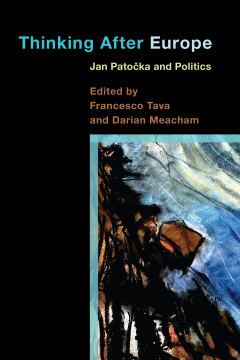
Additional Information
Book Details
Abstract
Jan Patočka, perhaps more so than any other philosopher in the twentieth century, managed to combine intense philosophical insight with a farsighted analysis of the idea and challenges facing Europe as a historical, cultural and political signifier. As a political dissident in communist Czechoslovakia he also became a moral and political inspiration to a generation of Czechs, including Václav Havel. He accomplished this in a time of intense political repression when not even the hint of a unified Europe seemed visible by showing in exemplary fashion how concrete thought can be without renouncing in any way its depth.
Europe as an idea and a political project is a central issue in contemporary political theory. Patočka’s political thought offers many original insights into questions surrounding the European project. Here, for the first time, a group of leading scholars from different disciplines gathers together to discuss the specific political impact of Patočka’s philosophy and its lasting significance.
More than any other volume, Thinking after Europe demonstrates the philosophical and political relevance of Patočka. Not only does it include two new texts written by Patočka, it also presents new essays on Patočka written by the best scholars. Thinking after Europe runs through political dissidence to political phenomenology, to the philosophy of history, and the rethinking of community – in order to arrive at the very question of Europe. This is an immensely valuable collection.
Leonard Lawlor, Sparks Professor of Philosophy, Penn State University
Thinking after Europe makes important contributions to both phenomenology and political philosophy. Exploring the neglected political dimensions of Patočka’s a-subjective phenomenology, these essays show how its grounding in a provocative rethinking of human historicity affords productive new philosophical resources for engaging critically with vital issues of global significance. With phenomenology at a methodological crossroads and enlightened political thought prone to naïve optimism or undue pessimism, this stimulating reconsideration of Patočka’s ‘heretical’ project is timely and very welcome indeed.
Bryan Smyth, Adjunct Professor of Philosophy, University of Mississippi
Even if the problem of the political, in all its dimensions, was always at the centre of Patočka’s work, it has never before been the object of an exhaustive and profound study. This book, edited by Francesco Tava and Darian Meacham, changes that. For Patočka the question of the political is inseparable from phenomenology itself. This is clear across his theory of the three movements of human existence, but also in the themes of community, dissidence, history, and finally the meaning and current situation of of Europe. This book takes on all these questions in a rigorous, lucid, and profound fashion. It is an indispensable reference for anyone interested in Patočka’s work.
Renaud Barbaras, Professor of Contemporary Philosophy, University of Paris 1 (Sorbonne)
Francesco Tava is a Postdoctoral Scholar at the Husserl-Archives: Centre for Phenomenology and Continental Philosophy at the KU Leuven, Belgium. He is the author of The Risk of Freedom (2015).
Darian Meacham is Senior Lecturer in Philosophy at the University of the West of England. He is the editor of Medicine and Society: New Perspectives in Continental Philosophy (2015).
Contributors:
Suzi Adams, Senior Lecturer, Flinders University of South Australia; Marion Bernard, Postdoctoral Scholar, Université Paris 1 Panthéon-Sorbonne; Tamara Caraus, Postdoctoral Scholar, New Europe College‐Bucarest; Ivan Chvatík, Director of the Jan Patočka Archive, Prague; James Dodd, Associate Professor of Philosophy, New School of Social Research; Simona Forti, Professor of Political Philosophy, Università del Piemonte Orientale; Ludger Hagedorn, Professor, IWM Vienna and New York University; Daniel Leufer, Graduate Student, University of Leuven; Giuseppe Menditto, Postdoctoral Scholar, Università di Roma La Sapienza; James Mensch, Professor of Philosophy, Charles University, Prague; Riccardo Paparusso, Lecturer, Angelicum University, Rome; Jiri Priban, Professor, Cardiff University; Teresa Pullano, Postdoctoral Scholar, Université Libre de Bruxelles; Ovidiu Stanciu, Graduate Student, Bergische Universität Wuppertal; Michael Staudigl, Senior Lecturer, University of Vienna; Lubica Učník, Senior Lecturer, Murdoch University, Australia; Nicolas De Warren, Professor, University of Leuven
